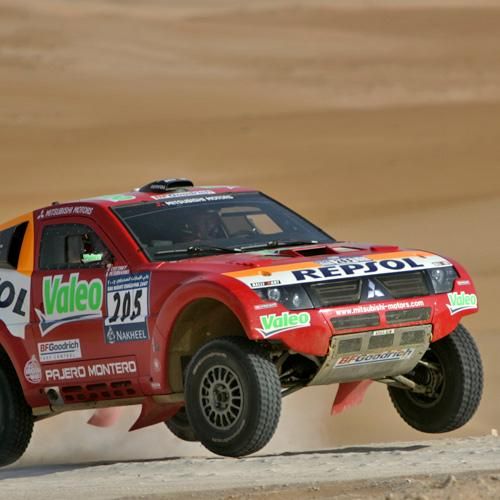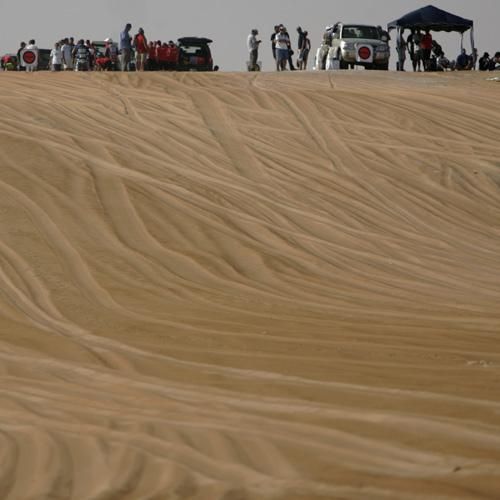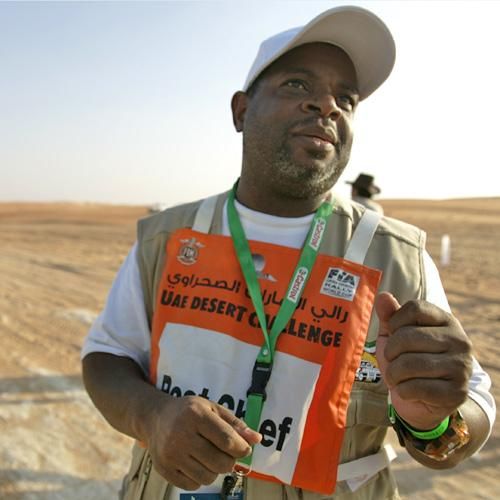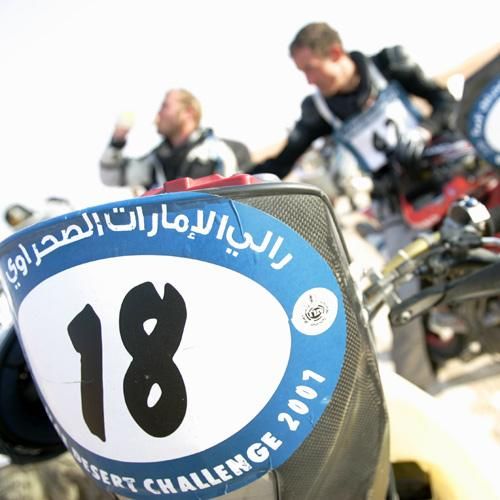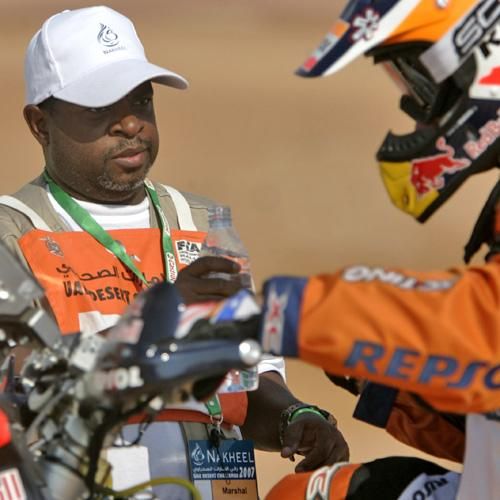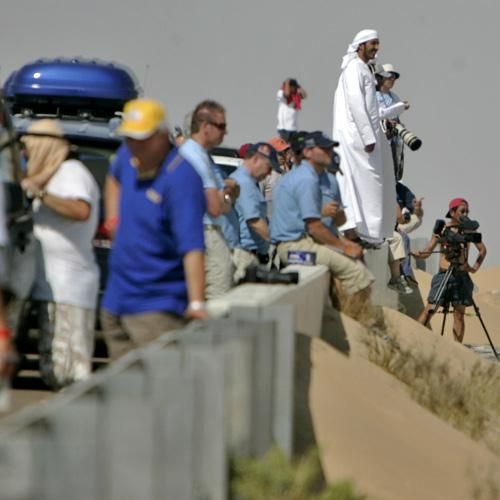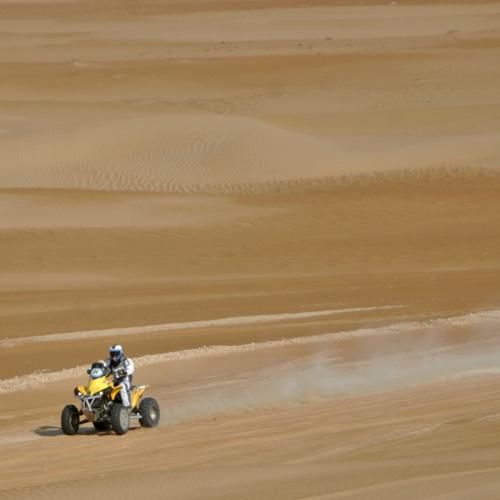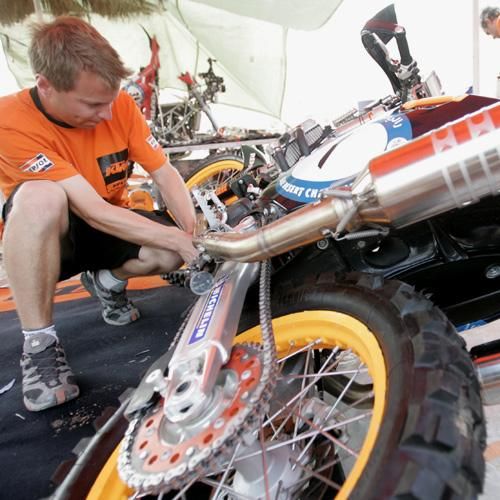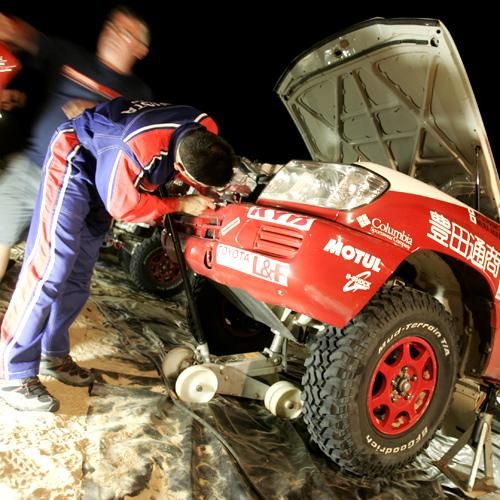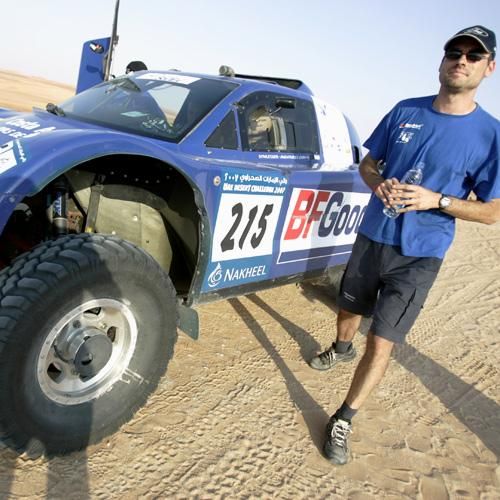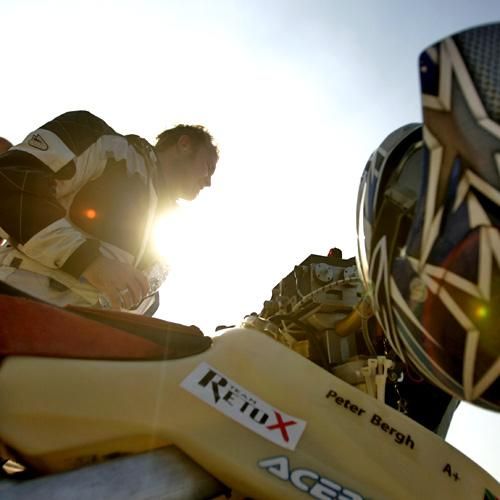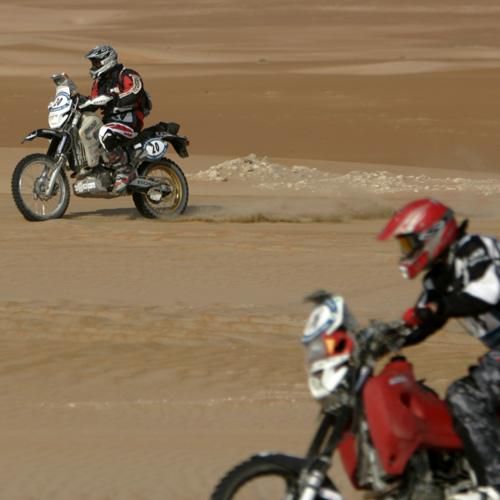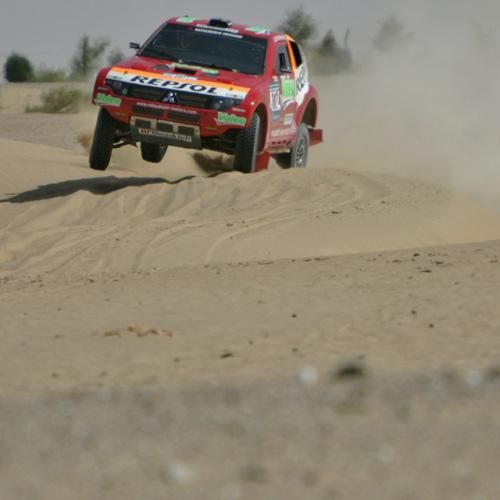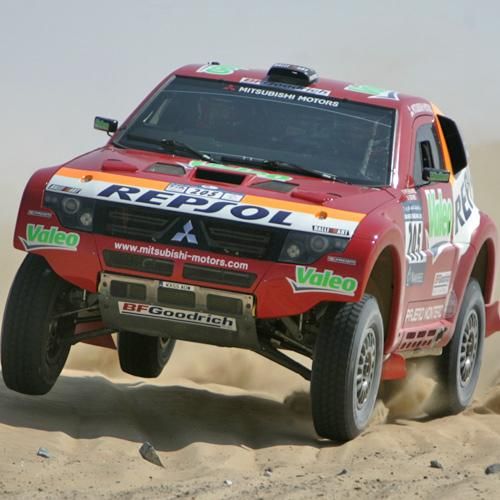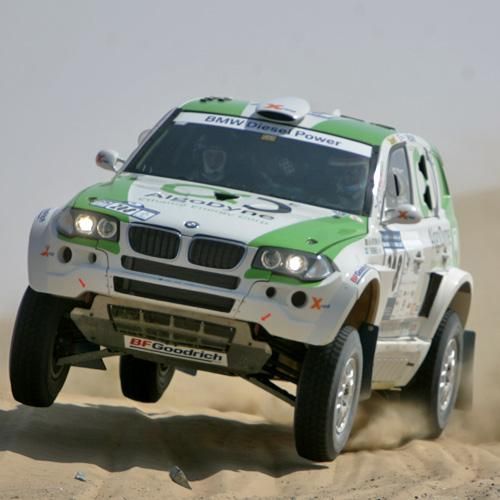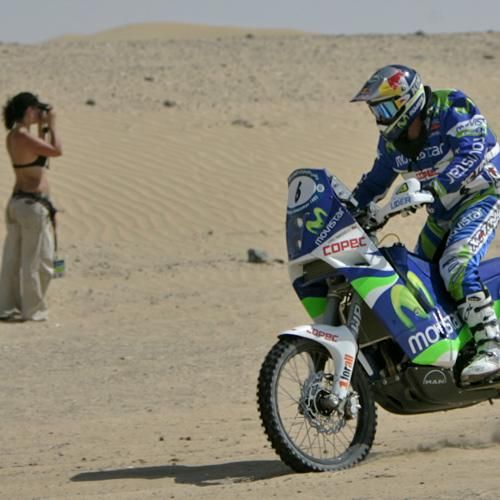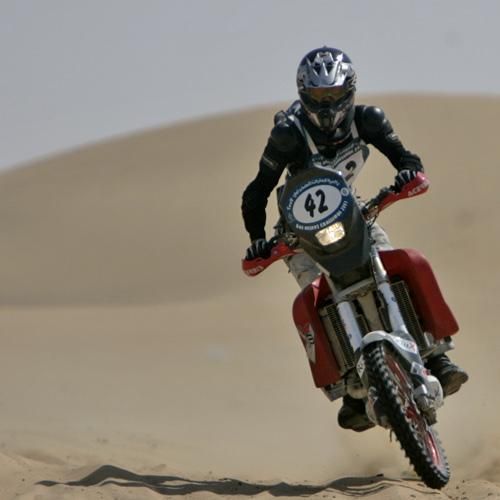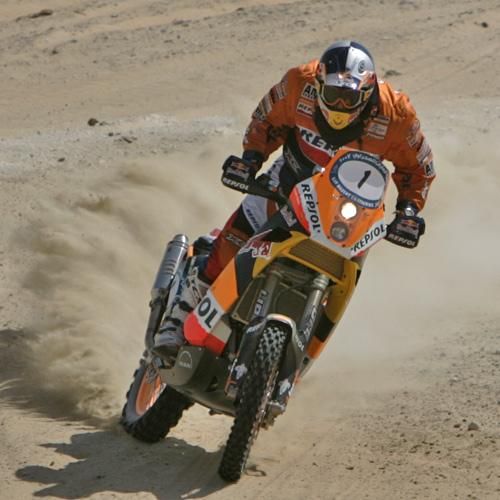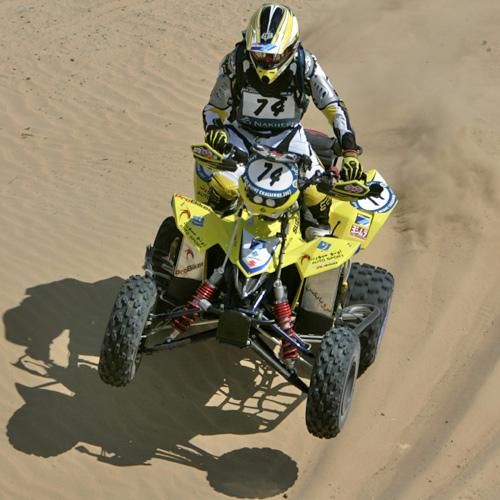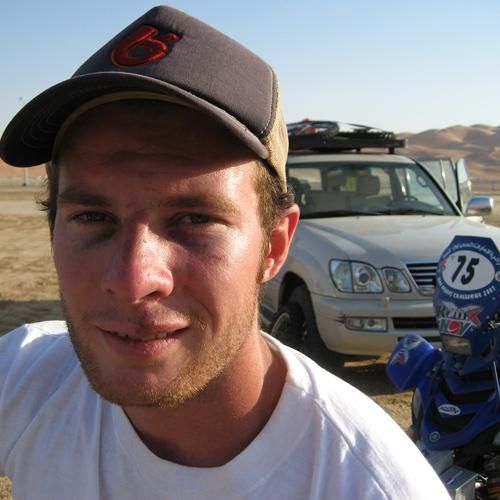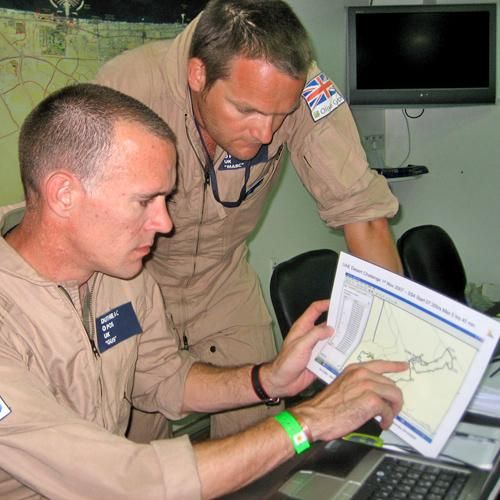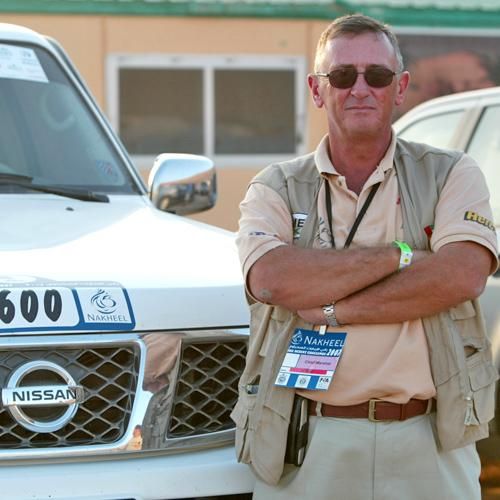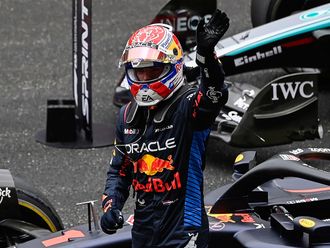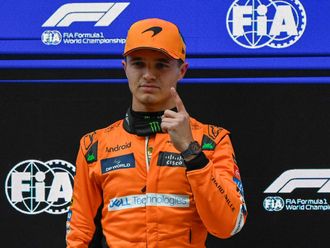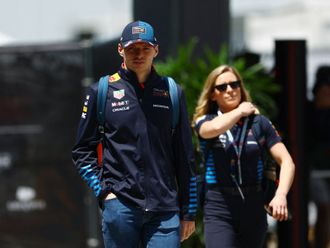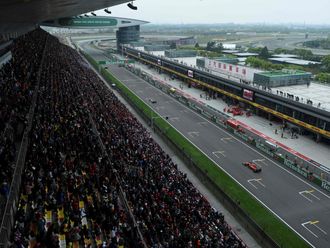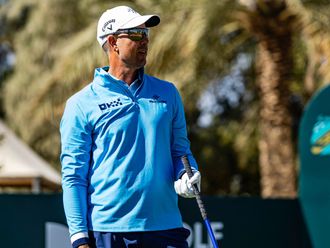The Chief Marshall
While the UAE Desert Challenge is mainly about powerful machines aiming to outdo one another under the searing heat, the event runs smoothly because of a small band of key men.
And Chief Marshal Ron Thompson is one of them.
As the cars, bikes and trucks engage in their showdown across the dunes, Thompson goes about his business without too much fuss and ensures he doesn't miss out on the fun.
"My duties are basically setting up the team of marshals, putting them into groups, and then making sure they know what they are supposed to be doing during the rally," he says before adding: "I spend most of my time during the rally driving from passage control to passage control to make sure things are fine and my marshals are happy enough to come back next year."
Thompson paid tribute to his dedicated team and underlined their role saying: "They give up a lot of their time for these five days purely on a voluntary basis and are extremely important, as without them you couldn't run the event."
The 60-year-old Briton arrived in the UAE in 2002 and is currently in his third year at the helm. So has he experienced anything out of the ordinary in that time? "In the past, we have had issues with some of the local residents and it has been my job to resolve them. I guess I was in the right place at the right time or perhaps the wrong time," he says.
But that aside, Thompson insists the Desert Challenge is a date he eagerly looks forward to every year.
"There is nothing better than to get away from the pressures of office work and spend five days in the desert. You face pressure here too, but it is a different kind from what you face at work. It's fantastic, I love it and will be happy to do it as long as they have me," says the full-time project manager of Middle East power projects at Sumitomo Corporation.
There is another reason why Thompson is a happy man. "I was told several times by competitors last year that they were tremendously impressed by the treatment of our marshals. That is gratifying feedback," he says.
Ron's Road
Before arriving in the UAE, Ron Thompson was a marshal in the UK at both track and rally events. Aside from his role at the Desert Challenge, he also runs a rescue/recovery unit at the Dubai Autodrome.
The Post Chief
He is the first face that greets every competitor as they approach the finish of every stage of the five-day UAE Desert Challenge. But aside from collecting the time cards of the participants, Thuwein Al Mazroui, the rally's post chief, believes in extending his strenuous job beyond its essential responsibilities.
The 45-year-old Al Mazroui stands hours keeping a watchful lookout for the first car or bike to appear from the intimidating dunes. He says: "When the competitors come across, they are exhausted, so you need to lift their morale by welcoming them in the right way. We even ask them a few friendly questions sometimes."
Al Mazroui says his job begins much before the start of the rally. "Normally before the rally begins, we go around the stage to check if there are any points where the driver or rider can take advantage and we put a marshal at that point.
"When they reach the finish, we have to check their GPS to see if they have passed through all the points. And we have to maintain the right time of crossing the finish so nobody can indulge in any foul play," he says.
Al Mazroui was born in Zanzibar but lived all his life in the UAE and he explained how he reached his current post. "My first rally experience was the Masafi Rally of 1985. Since then I have been involved regularly and did local rallies up to 2000. Now I only do international rallies like the Desert Challenge and a few others."
The Search & Rescue Head
Head of search and rescue Angus Duthie has been a busy man during this year's UAE Desert Challenge - perhaps more so than any of his previous six years of involvement in the competition.
But the Kenyan-born UK national, who has made the UAE his home for the past nine years likes to adopt a fairly straightforward philosophy to any hiccup, big or small. "It is dealing with a managed response in terms of providing a solution to what is required to save lives and ensure that the rally runs smoothly," says Duthie matter of factly.
"This rally has been very tough for competitors which makes it tough for the search and rescue team. We have been on it constantly but there has been a dramatic improvement in response times to competitors' needs which have matched the advances in technology," he adds.
Duthie, 41, says his job involves working alongside chief medical officer Dr Sean Petherbridge's team and that the two have linked up well so far. Referring to a dramatic second day, he says: "There were four incidents that took place simultaneously and all four were very well co-ordinated through the integration between the search and rescue team and the medical team.
"At the end of the day, the quality of the response is purely down to the quality of the people involved. All the individuals are volunteers, many of whom have flown out from the UK at their own expense to support the UAE in what is widely regarded as one of the best-run events on the FIA and FIM calendar."
Having served as captain of a unit within the UK armed forces, Duthie admits slipping into his role at the Desert Challenge was not a problem. "It is a very intense environment which requires previous command and control experience and I'm able to donate previous experience and skills to support Mohammad Ben Sulayem," says the control centre manager of private security firm Olive Group, who support the event.
The Accident Victim
Twenty-three-year-old Hylton Smith arrived in the UAE a week ago excited and raring to compete in his first rally, let alone the Desert Challenge.
But 43 kilometres into the first stage, a point at which he was leading Frenchman Cyril Despres who would finish the stage in second, an accident halted Smith's progress leaving the youngster from South Africa with minor facial and shoulder injuries that eventually ruled him out of further participation.
The hardest thing Smith has had to come to terms with since then is the uncertainty over what led to the disaster. "I don't quite recall what happened. You would have to ask Cyril as he would be able to tell you better," said the Natal native.
"I was going well and wasn't really going excessively fast compared to what I do back home. That's the worst thing, not to know what happened. If I did know at least I would have known what I could have done better."
As much as the scars from the accident, the frustration was just as evident on his face when he said: "It took me eight months of hard work and 130,000 rand (Dh73,000) to get here and I messed up. It is disappointing as I've got family and friends back home supporting me."
But in true sporting spirit, Smith promised this would not be his last Desert Challenge. "I will be back here next year definitely. As long as I can afford it, there is no doubt about that."
On a brighter note, his stay in the UAE extends a few days beyond the Desert Challenge finish and he plans to make the most of it. "It is my first time here. My dad's also here and I'm staying with my cousin so I should get a chance to take a tour and probably relax as well," he said.


